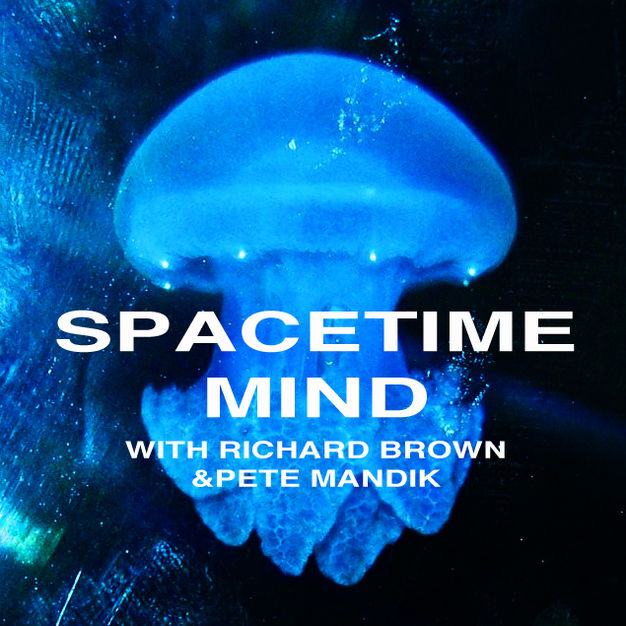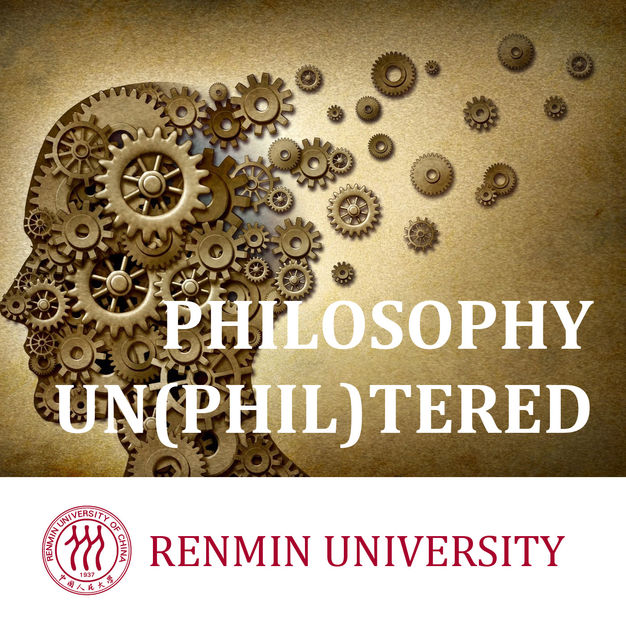
Blog - Space Time Mind
Richard Brown and Pete Mandik
Philosophy professors Richard Brown and Pete Mandik tackle topics ranging from the neuroscience of consciousness to the philosophical foundations of physics.
- Episode 40: Crungus Among Us (with Alex Kiefer)
Watch the video of this discussion here: https://youtu.be/ASYDMgMfCtk
Alex Kiefer’s webpage http://alexbkiefer.net
Alex Kiefer’s music (as exileFakir): https://exilefaker.bandcamp.com
WaPo story about Google engineer Blake Lemoine and LaMDA: https://www.washingtonpost.com/technology/2022/06/11/google-ai-lamda-blake-lemoine/
SpaceTimeMind Episode 28: Psychedelic Artificial Neural Networks: http://www.spacetimemind.com/blog/2015/6/30/episode-28-psychedelic-artificial-neural-networks
Behold!: The Crungus: https://www.iflscience.com/nothing-to-worry-about-dall-e-has-created-a-new-cryptid-named-crungus-64118
AI Can Now Generate DMT Visuals, Thanks To This Online Community: https://doubleblindmag.com/ai-can-now-generate-dmt-visuals/
Intelligence Unbound: The Future of Uploaded and Machine Minds: https://ndpr.nd.edu/reviews/intelligence-unbound-the-future-of-uploaded-and-machine-minds/
Quiet Karate Reflex: https://quietkaratereflex.bandcamp.com
Additional info and credits:
Intro narration: Rachelle Mandik rachellemandik.com
Movie clip quote from: Space Men - Assignment Outer Space Space (1960):https://en.wikipedia.org/wiki/Space-Men
SpaceTimeMind Theme Song, Intro Version: Richard Brown on Drums and Pete Mandik on everything else.
Mid-episode break music: Ockham’s Chainsaw by Alex Kiefer (as exileFakir): https://exilefaker.bandcamp.com/track/ockhams-chainsaw-2
SpaceTimeMind Theme Song, Outro Version: Pete Mandik
15 July 2022, 3:59 am - Episode 39: Complicated Moist Robots (with Tarik LaCour)
Video discussion from which this episode’s audio is taken: https://youtu.be/HI7OsUfPzHI
Tarik LaCour on twitter: https://twitter.com/realscientistic
Tarik’s conversation with Emerson Green: https://youtu.be/M3ShG06vJ2A
Additional info and credits:
Intro narration: Rachelle Mandik rachellemandik.com
Movie clip quote from: The Creation of the Humanoids (1962): https://en.wikipedia.org/wiki/The_Creation_of_the_Humanoids)
SpaceTimeMind Theme Song, Intro Version: Richard Brown on Drums and Pete Mandik on everything else.
Mid-episode break music: Diesel by Pete Mandik
SpaceTimeMind Theme Song, Outro Version: Pete Mandik
28 June 2022, 4:24 pm - Episode 38: The Spirit of the Senses Session
Video discussion from which this episode’s audio is taken: https://youtu.be/b_oRS7nIujg
Webpage for the Spirit of the Senses Salon: http://spiritofthesenses.org/moreaboutus.htm
Additional info and credits:
Intro narration: Rachelle Mandik rachellemandik.com
Movie clip quote from: War of the Satellites (1958) https://en.wikipedia.org/wiki/War_of_the_Satellites
SpaceTimeMind Theme Song, Intro Version: Richard Brown on Drums and Pete Mandik on everything else.
Mid-episode break music: Spring Theory by Pete Mandik
SpaceTimeMind Theme Song, Outro Version: Pete Mandik
15 June 2022, 2:46 pm - Episode 37: Rainbow in the Dark (with Jacob Berger)
Video discussion from which this episode’s audio is taken: https://youtu.be/I1p2MnXnvzc
Jake’s webpage: https://jfberger.wixsite.com/home
Jacob Berger & Richard Brown (2021) Conceptualizing consciousness, Philosophical Psychology, 34:5, 637-659. https://www.tandfonline.com/doi/full/10.1080/09515089.2021.1914326
Berger 2 A Defense of Holistic Representationalism, Mind & Language 33(2): 161-176. https://onlinelibrary.wiley.com/doi/abs/10.1111/mila.12163
David Rosenthal, There’s Nothing about Mary. https://www.davidrosenthal.org/DR-Mary.pdf
Additional info and credits:
Intro narration: Rachelle Mandik rachellemandik.com
Movie clip quote from: Star Odyssey (1979) https://en.wikipedia.org/wiki/Star_Odyssey
SpaceTimeMind Theme Song, Intro Version: Richard Brown on Drums and Pete Mandik on everything else.
Mid-episode break music: Diesel by Pete Mandik
SpaceTimeMind Theme Song, Outro Version: Pete Mandik
24 May 2022, 10:35 am - Merch!
Merch! It exists; it is available; I’m here to tell you about it. There are THREE flavors of SpaceTimeMind merch, and they’re all available in my RedBubble shop linked here: LINK.

The three flavors of SpaceTimeMerch: Logo, Cowboy, and Jellyfish.
Go hog wild. Get a teeshirt. Or some coffee mugs. Stickers, even. Proceeds go to pay for keeping the podcast casting (which mostly is just web hosting fees).
If you score some cool SpaceTimeMind merch, be sure to tell us about it here or on twitter! And if you’d rather help financially without also receiving cool merch, head on over to our support page and mash on the DONATE button over there. Thank you!







16 May 2022, 5:40 pm - Episode 36: NeuroYogacara (with Bryce Huebner)
Video discussion from which this episode’s audio is taken: https://youtu.be/8e847S4uGWo
Bryce’s webpage: https://brycehuebner.weebly.com
Gold, Jonathan C., "Vasubandhu", The Stanford Encyclopedia of Philosophy: https://plato.stanford.edu/archives/spr2021/entries/vasubandhu/
11 May 2022, 3:13 pm - 56 minutes 2 secondsEpisode 35: Consciousness and Funky Content
Things get funky when Richard Brown and Pete Mandik tackle this funky question about consciousness and its contents: In order to account for consciousness in terms of representational content, how FUNKY does the content need to be? Along the way we discuss the representation of inexistents and whether mathematical structuralism can shed light on the conceivability of undetectable qualia inversions. Is there any real difference (as opposed to a merely notational difference) between the square root of negative one and the negative square root of negative one? If so, what would that tell us about the question of whether intersubjectively undetectable qualia inversions are conceivable? Anything?
- Videos from the "Higher-Order Theories and Mental Qualities" conference in honor of David Rosenthal
- Alex Byrne "Rosenthal on Mental Qualities"
- Richard Brown "Two Concepts of Phenomenal Consciousness"
- Austen Clark "Qualitative Character and Conceivable Inversions"
- Leibniz’s Law (Identity of Indiscernibles) @wikipedia
31 October 2015, 9:28 pm - 56 minutes 48 secondsEpisode 34: Awareness, Attention, and Globally Accessible Information

ATTENTION! Richard Brown and Pete Mandik shine their spotlights on the philosophy of mind of attention and awareness. Many philosophers of mind endorse the Transitivity Principle, the view that if you have a conscious state, you must be aware of that state. But what is the best account of the relevant notion of awareness? Is attending a kind of awareness? Further, is it a kind of awareness that is distinct from the awareness one has in virtue of perceiving, thinking about, or sensing something? Does it suffice for being aware of something that information about it is globally accessible to an embedding system? Would global availability suffice for a higher-order awareness of one’s own mental states, or would it only suffice for a first-order awareness of environmental or bodily items? Along the way we also get into some methodology and metaphilosophy, especially as regards the question of to what degree philosophical and scientific theorizing should be constrained by folk theory.
- Videos from the "Higher-Order Theories and Mental Qualities" conference in honor of David Rosenthal
- Uriah Kriegel The Same-Order Monitoring Theory of Consciousness
- Richard Brown The HOROR Theory of Phenomenal Consciousness
- Sauret and Lycan Attention and internal monitoring: a farewell to HOP
- Robert van Gulick Higher-order global states : An alternative higher-order model of consciousness
- Sam Coleman Quotational Higher-Order Thought Theory.
16 October 2015, 10:44 pm - 1 hour 48 minutesEpisode 33: The Philosophy of Mind of Pain (with David Pereplyotchik)

Prof. David Pereplyotchik once again joins Pete Mandik to tackle pain in the philosophy of mind. Can there be a scientific reductive explanation of pain? Can robots feel pain? Will this hurt? We here continue the conversation we started in SpaceTimeMind Episode 27.
(Audio drawn from video chat viewable @YouTube.)
Past pains:
- Episode 27: Pains and Brains (with David Pereplyotchik)
- Episode 19: Fun, Pain, and Ontology (with Eric Kaplan)
15 September 2015, 10:02 am - 1 hour 12 minutesEpisode 32: Technological Immortality and Secular Hell

Richard Brown and Pete Mandik debate the following proposal: The worst thing you can imagine happening to you is an event that has a non-zero probability of occurring at any given moment, and the longer you stay alive, the greater the chances become of that thing happening at some point in your lifetime. Would literally infinitely-lived immortals necessarily run into their own worst imaginable hell? Would even finite, but long-lived transhuman lifespans increase their chances of suffering by increasing their time alive? Would any amount of possible pleasure make it worth risking the worst imaginable suffering? Along the way we talk a little physics and a little Buddhism. Are interpretations of quantum mechanics the place where explanations go to bottom out? What are the physical prospects of the universe itself not dying? If you can achieve, in a single moment, a conscious experience of eternity, what’s the point of having more than one such experience?
(Video source: @YouTube)
- Pete Mandik Review of Intelligence Unbound: The Future of Uploaded and Machine Minds
- Eliezer Yudkowsky Torture vs. Dust Specks
- Anchordoqui et al Stringy origin of diboson and dijet excesses at the LHC
- K.C. Cole Wormholes Untangle a Black Hole Paradox
- The Law of Large Numbers @Wikipedia
1 September 2015, 4:00 am - 1 hour 1 minuteEpisode 31: Future Philosophy

Get in the Delorean, Marty! It’s time for the future of philosophy and the philosophy of the future. Philosophers and chrononauts Richard Brown and Pete Mandik overclock their flux capacitors to see if philosophy has a chance of surviving into the deep future of the human race. In the first half of the episode, they discuss the future of life itself. Along the way they hit Nick Bostrom’s “Great Filter” argument, Susan Schneider’s argument that aliens will be robots, and Pete’s own “Metaphysical Daring” argument about mind uploading and posthuman survival strategies. In part two, they delve into the future of the human race, and the question of whether philosophy could survive humanity's slipping into a Mad-Max-style future-primitive dark age. If we don't devolve into an idiocracy, will philosophy ever converge on a uniquely correct way of representing the real?
(The audio in this episode is edited down from our video chat viewable @YouTube)
- Jeremy England and physics of life @ScientificAmerican
- Nick Bostrom and his Great Filter argument @YouTube
- Susan Schneider on why aliens would be robots @Vice
- Pete Mandik "Metaphysical Daring as a Posthuman Survival Strategy"
- Richard Brown "What Is Philosophy?"
- Bernard Williams “On Hating and Despising Philosophy”
15 August 2015, 8:47 pm - More Episodes? Get the App
Your feedback is valuable to us. Should you encounter any bugs, glitches, lack of functionality or other problems, please email us on [email protected] or join Moon.FM Telegram Group where you can talk directly to the dev team who are happy to answer any queries.

 You've Got It All Wrong
You've Got It All Wrong
 Unsupervised Thinking
Unsupervised Thinking
 The Thought Experiment
The Thought Experiment
 Minerva
Minerva
 Proceedings of the Aristotelian Society
Proceedings of the Aristotelian Society
 Philosophy Un(phil)tered
Philosophy Un(phil)tered